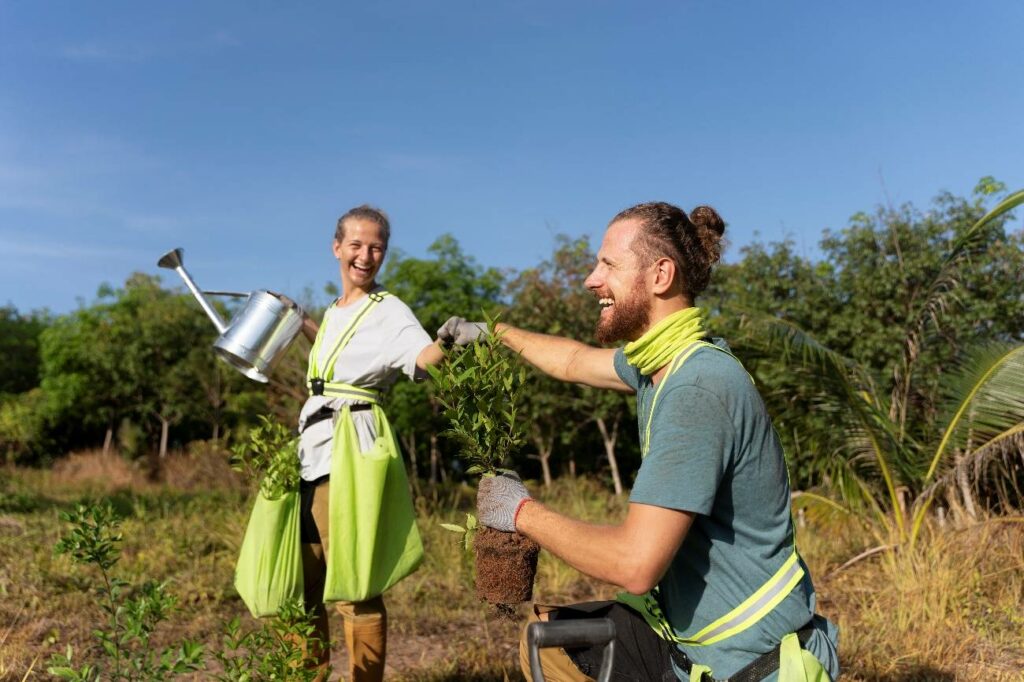Sustainability has become an omnipresent term in recent years, and for good reason. Concern for the environment and the need to save our planet for future generations are at the center of the global agenda.
The European Union is promoting policies to encourage sustainability across all sectors, including agriculture and fishing. Support is being provided to farmers and fishermen to adopt sustainable practices and policies. This is very important for companies dedicated to selling no-till seeding machinery, such as Virkar Group.
In this article, we will explore how Brussels is working to “support” farmers and fishermen in their transition toward sustainability and how this can benefit the agricultural community and companies dedicated to no-till seeding machinery.
The Sustainability Agenda in Agriculture and Fishing
Agriculture and fishing are two sectors with a significant impact on the environment and global sustainability. There are many important challenges that these sectors face. Overexploitation of resources, deforestation, and greenhouse gas emissions are some of them.
The European Union has established measures and regulations to address these issues and promote more sustainable practices, providing support to farmers and fishermen.
The transition to sustainability requires resources and a lot of effort. It is not an easy task. This is why initiatives and programs have been implemented to support those working in these sectors, such as farmers.
Investments in Sustainable No-Till Seeding Machinery
In adopting sustainable practices in agriculture, agricultural machinery plays a fundamental role. Direct seeding is a method that reduces soil abrasion, which decreases erosion and increases water retention in the soil. Thanks to this type of seeding, carbon emissions are reduced, and the conservation of biodiversity and soil is promoted.
Brussels has recognized the importance of this machinery and has allocated funds and resources to help farmers acquire and use it. This is relevant for companies like Virkar Group, which are dedicated to selling no-till seeding machinery, as the demand for these sustainable machines is increasing.
Additionally, the EU has also established training programs so that farmers can make the most of these technologies and effectively adopt sustainable practices.
Promotion of Organic Farming
A fundamental part of the sustainability strategy promoted by the European Union is ecological agriculture. The goal is to encourage agricultural practices that minimize the use of chemicals and preserve biodiversity.
The European Union is providing the agricultural sector with financial aid, subsidies, and payment-for-ecosystem-services programs to encourage farmers to adopt these practices.
Farmers who choose organic methods can benefit from a growing market of consumers concerned about sustainability. Additionally, ecological agriculture can improve soil quality and crop health in the long term, which benefits both farmers and the environment.
Sustainable Fishing and Protection of Marine Ecosystems
Fishing is another key industry in the coastal region of our country, and it is also undergoing a shift toward sustainability. The EU has implemented stricter fishing regulations, limiting overfishing and protecting endangered species. Additionally, the use of more selective fishing gear that minimizes unwanted catches is being promoted.
For fishermen, these policies can represent a significant change in their practices. Despite the initial challenges, sustainable fishing will help maintain the health of marine ecosystems and ensure the survival of fish species. Thanks to this, we can secure a continuous supply of fresh, high-quality fish for local consumers.
Benefits of Sustainability for Local Agriculture and Fishing
Brussels is committed to “supporting” farmers and fishermen in their transition toward sustainability. This transition is not only essential to preserve the environment but can also bring significant benefits to the agricultural community and local companies dedicated to no-till seeding machinery.
It is important to consider the long-term profitability of farmers who invest in sustainable agricultural machinery and the promotion of organic farming practices. In addition, it is important to keep in mind that these changes in their way of working will make them more resilient to the challenges we are already facing due to climate change.
The way to achieve sustainable fishing and ensure a continuous supply of fresh, high-quality fish while preserving marine biodiversity is through these regulations and their enforcement.
Looking at the long term, being sustainable is not only an environmental responsability but also an opportunity for economic growth and prosperity.
Companies like Virkar Group, which are dedicated to the sale of direct seeding machinery and other agricultural services, play a fundamental role in this transformation.
